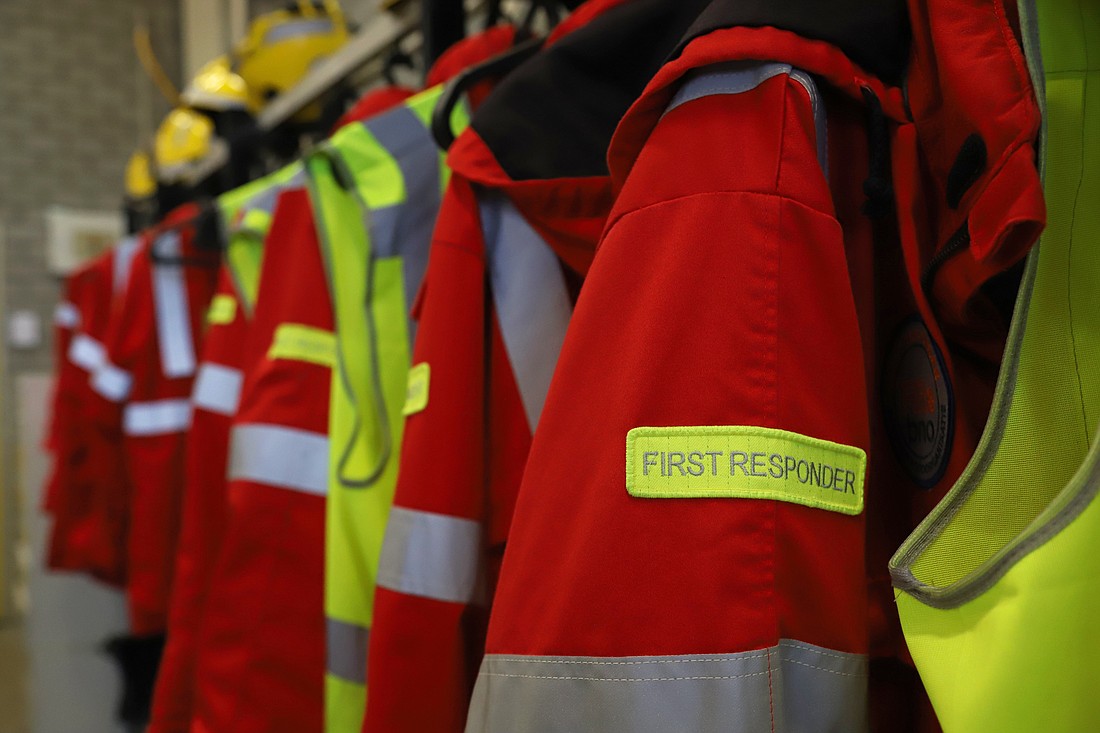- April 8, 2025
Your free article limit has been reached this month.
Subscribe now for unlimited digital access to our award-winning local news.

As a first responder, Bridget Wick thought dealing with mental health challenges was just a part of the job.
Seeking help, she said, was seen as not being fit for duty, and that's a stigma she had to overcome when she realized she couldn't overcome her job-related depression and pain. Wick had already left her job in New York as an EMT and moved to New Smyrna Beach after a divorce when the feelings she'd suppressed caught up with her.
Karen Chrapek, a first responder peer specialist and executive director of Volusia Recovery Alliance, and LSF Health Systems' First Responder Peer Support Program helped Wick overcome her struggles.
"I really wanted to feel like myself again," Wick said. "Sometimes when you speak with somebody, even just getting your thoughts out there, you feel a little better, or it helps make sense in your head."
The First Responder Peer Support Program was launched in June 2022 thanks to $12 million in state funding to expand peer-to-peer mental health services for first responders. The funds were dispersed to all six regions of the Department of Children and Families.
LSF's program is free to all current and former first responders and their families within a 20-county area in the Northeast and Northern Central Florida, including Flagler and Volusia counties.
First responders are invited to call 211 for help, and they will be paired with a first responder peer specialist within 24 hours. That peer specialist will schedule a face-to-face meeting, phone or video call to speak with the first responder, and will continue to be available for a period of up to six months.
Volusia Recovery Alliance, a nonprofit based in Ormond Beach, has been a provider of the program since mid-August last year. As someone with family members who were first responders, and as a former emergency room health care provider, Chrapek saw firsthand how witnessing traumatic events can make an impact on mental health.
"There is a lot of stigma about asking for help within the first responder population," she said. "I didn't ask for help because I didn't want to be judged, and so my (substance) use continued because I never asked for help until nine years after I realized that I had a problem. That's a long run."
Dr. Christine Cauffield, CEO of LSF Health Systems and a clinical psychologist, said over 1,400 first responders have been served by the program in the last two years.
"First responders have such a unique work environment," she said. "They see so many traumatic events and experience — countless crises situations every single day and very few professions, you know, compared to that environment. And, as a result, they do have a higher risk for suicide, mental health challenges, substance use and family discord, and so we really want to to be a resource for them and their family members to deal with the behavioral health care challenges that often go hand in hand with the type of work that they do every single day."
Peer navigators, she said, have been critical to the program's success because as first responders themselves, they can help connect with the ones in need of help.
"I'm really grateful that we have so many first responders that stepped up and said, 'Yes, I want to go through the certified recovery peer specialist training to be able to help my fellow colleagues,'" Cauffield said.
Wick is now one of those certified recovery peer specialists. She said she's excited about doing something she's passionate about — helping others.
"It's such an amazing feeling, not only just having things squared away and feeling like I have a purpose again, but I'm so excited to help our local first responders."
Wick is VRA's biggest success story surrounding the program, Chrapek said.
"It's a thrill for me because I really love the fact that, because of this program, we've had the opportunity to make a positive impact on somebody's life," she said.
First responders often fight silent battles, Wick said, but they don't have to.
"You're supposed to be strong because you're helping other people," Wick said. "So it's not OK to not be OK, but it really is OK to not be OK."
Your free article limit has been reached this month.
Subscribe now for unlimited digital access to our award-winning local news.